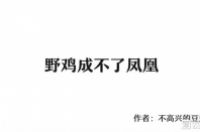
保函换取清洁提单,即使提单内含有Retla clause条款,承运人依然要承担损害赔偿责任
一直以来,承运人一个重要职责就是出具的提单必须反映装船时货物的真实状况,即使提单有约定,也不能排除承运人的损害赔偿责任。
案例:
买卖双方签署合约,卖方出售钢管给买方。货物装船之前,有检验机构检查,并出具报告表明,该批钢管部分锈渍(已经超越了正常的生锈范围,影响到了品质),且该报告已经作为大副收据附件。装船后,卖方以保函换取了没有标记的清洁提单(提单内含有Retla clause条款,下文详述),同时在信用证下结汇。货物到达目的港后,发现货物与提单表述不符,收获人随即起诉承运人,要求承运人赔偿损失。
法院在审理该案时,主要焦点集中在Retla clause条款是否可以让承运人免责。
Retla clause条款内容如下:
If the goods as described by the merchant are iron ,steel,metal or timber products ,the phrase”apparent good order and condition” set out in the preceding paragraph does not mean the goods were received in the case of iron ,steel or metal ,free of visible rust or moisture or in the case of timber products free from warpage breakage,chipping ,moisture,split or broken ends,stains ,decay or discoloration.nor does the carrier warrant the accuracy of any piece count provided by the merchant or the adequacy of any banding or securing.if the merchant so requests,a substitute bill of lading will be issued omitting this definition and setting forth any notations which may appear on the mates or tally clerks receipt.”
上述大意是:针对钢铁制品等,提单注明“apparent good order and condition”并不是货物没有可看见的锈迹。承运人可以依据发货人的保函出具没有任何“污点”的提单。
法院认为,Retla clause条款不能免除承运人的赔偿责任,法院认为如下:
Retla clause only excludes surface rust which is likely to be found in any normal cargo and which would not detract from its overall quality and affect its merchantability ...........
Permitting the carrier to escape liability for the statement of apparent order and condition undermines the Hague Rules goal of protecting the bill of lading as a commercial document on which third parties can rely....
法院上述论述大意:Retla clause只能排除该等任何货物都会出现的表面生锈现象,但是能影响该货物的整体质量及可销售性的生锈现象不再此列。如果允许承运人免责,将会使海牙规则保护的第三方依赖的作为商业文件的提单受到损害。
最后法院判决,承运人赔偿收货人的全部损失。




